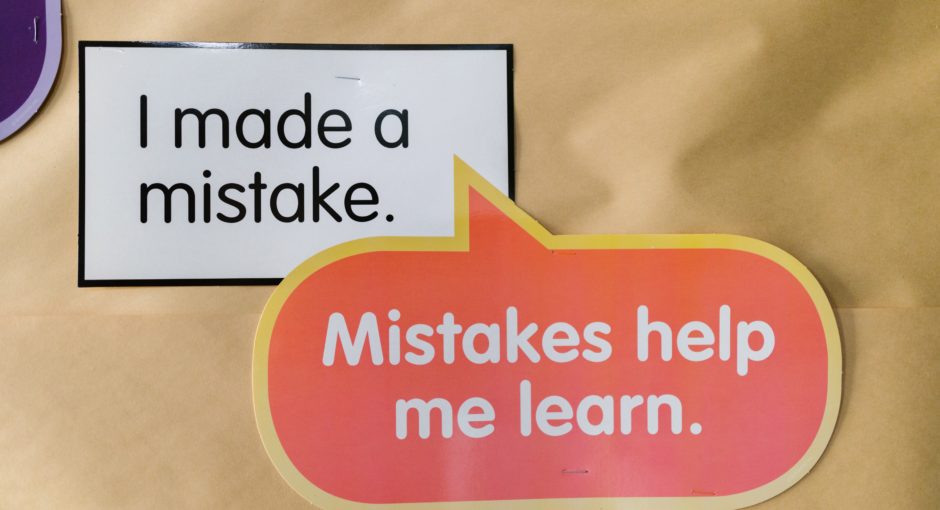I could probably write down 10,000 mistakes, but all of these would only work out if you have a growth mindset, especially in the context of early-stage startups. Remember that trying and failing is the only way to do something great.
1) Choosing the wrong co-founder:
I made my fair share of mistakes with this topic in many of the companies that I started; in some, we were three founders; in other cases, we were only two people, and finally, I started with two founders and ended up myself.
I think the biggest lesson here is don’t choose a co-founder just because you don’t have more options, wait and choose someone who strengthens your weaknesses, that is aligned with you 100%, and is willing to die fighting for your dream too. Selecting the right co-founder for startup is an important step in ensuring success during its early stages.
2) Not understanding or giving the proper importance to finance:
In one of my early-stage startups (one of the first ones), I was close to scaling it up without making any financial statements. Lucky me, a Mentor pointed out to me the importance of having all these in order and why financials are critical for early-stage startups. This gives you visibility on many aspects: it helps you understand the health of your early-stage startup, to know ahead of time where you have to be more efficient, or even determine how much discount you can give a client without losing money, among other things.
Make sure you have that in place since day one. Plus, once you start making money, the IRS will hunt you down, so it’s better to have all numbers clear. Have in mind it’s hard to change pricing if you made a wrong calculation.
3) Thinking that Legal matters are only for big companies
Like Finance, Legal is crucial from the very start. It’s very important to focus on getting all contracts from employment to clients. The better you have all contracts looked at and validated; the more organized everything will be. This will help you avoid any issue that later could cost you a lot of money. Also, don’t choose your legal or financial advisors by how much they charge: choose them by the value they’d add to your startup.
Your team is your biggest asset, never lower the bar on recruiting.
4) Believing that more sales mean more profit:
Once you start having some traction in early-stage startups, you’d think growing fast is always the best thing that could happen to you. The truth is that fast growth does not always mean more profit, and this is where you need to understand the financials behind the growth of early-stage startups more than anything. You could sell 1 Billion dollars and make 1000 profit, and you can sell 100 million and generate 50 million of profit. Which one sounds like a profitable company in the world of early stage startups to you? The answer is obvious.
So, be careful when you are growing because your financial structure must always support healthy growth. This also applies to recruiting; hiring too fast could be bad for the company if you don’t have a transparent and conscious process.
To scale up, you need a good process that can change based on the market and feedback or a crisis like the one we encountered with the Covid-19 pandemic.
5) Get a Lower bar for recruiting:
As we started to grow, we had a lot of clients at the same time, and we didn’t have a promising sales pipeline forecast, so we ended up with many projects but not enough people.
Our recruitment process was good but a bit slow. We wanted excellent people, but to have “all hands on deck,” we decided to lower our bar by accepting people that maybe we wouldn’t have allowed in other circumstances. As you can imagine, the result was terrible, not only because the projects went awful, but because we had to spend more money fixing it and, in some cases, even losing the client, plus the effect on the company’s culture.
So never, never lower your standards on hiring!
6) Accepting every client that comes my way:
At the beginning of your startup, you’d probably take any client that you can to get some traction or survive. Still, as you move forward, you will realize that not all the clients are the right fit. I don’t mean in a materialistic way (ok, money is crucial but is not everything). Some clients could pay a lot but come as a heavy load on the company’s shoulders, and before you know it, you’d realize perhaps 80% of your revenue is accomplished by 20% of the right clients; you need to evaluate and see which client you are creating a relationship with.
Years of experience have now led me to validate the right fit with a client before we go forward and sign anything. Plus, we’ve set up working everything in phases, so we are sure that if the client changes their way, we have a way out. In a service company, it’s critical to understand who you are working with because it will impact the hardest things to build up: the company’s team, culture, and morale.
7) Chasing all the ideas, not focus at once:
All entrepreneurs have great ideas (if not, they would not be creating something from scratch, would they?). This is a good asset for all startups, it enables thinking outside of the box in all situations, but it could be a double knife edge if not channeled to the correct path or north because you lose focus on what will help you achieve your goals.
In my case, we have a service company that started building our own products, thinking that this might provide more revenue. Long story short, we stopped doing that because we were better at making products for other companies.
To create a product, we need a different structure, different teams, and processes besides the initial investment needed to ramp up. Another example is expanding to other markets, being strong in one, and then moving on to the next if you have the proper structure and team.
8) Think all partners would help me grow:
Partnerships are good as long as both parties are winning. Otherwise, they are not healthy. I’ve had my fair share of good and bad stories about this, so I can tell you to always have this crystal clear between both parties:
- Have transparent structure fees: Percentages, payment timelines, agreement’s length, etc
- How would you manage the relationship w
- ith clients
- How would you handle crises or problems
- Understand expectations
- And last but not least, understand where you want to take the relationship. It could just be a simple partnership or might take you to an M&A.
9) Not building
In each and every product or service company, you must have a sales engine. If you don’t create a funnel and have key metrics for decision-making, it will be complex to predict growth and expenses and you will have a hard time raising money. If you can’t have your own formula to scale sales, you are not getting anywhere. You can read more about it in the book Predictable Revenue.
Something that commonly happens is that the company’s founder is the one closing all the deals. This could be a good thing, but it’s not scalable. You need to make sure you have an engine that does not depend on one person, otherwise, it could slow things down if that person is not available or even worse stop the whole thing if something happens to that person. Since it represents a very high risk, I would recommend your company to be independent of the founder in general, but especially in sales.
A scalable Sales engine
Product or Service company, you need to create a sales engine. You can read more about it in the book Predictable Revenue; if you dont create a funnel and have metrics, it will be complex to predict growth and expenses and forget about raising money; if you can’t prove that, you have the formula to scale sales you are done.
The other scenario is with the Founder as the one closing all the deals, this is good, but you need to create an engine that does not depends on one person; otherwise is a high risk if something happens to that person. A company needs to be independent of the Founder in general but especially in sales.







1 comments On 9 Mistakes in early-stage startups
Pingback: How to Choose the Right Co-Founders for Your Startup - Entrepreneurship 101 ()